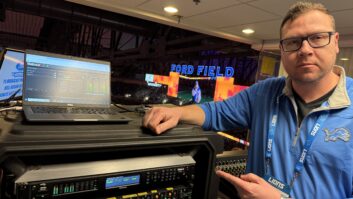
It’s time for the Federal Communications Commission to reevaluate and potentially change the scope of its authority — so says FCC Commissioner Michael O’Rielly in a recent blog titled “FCC Regulatory Free Arena.”
The fact of the matter is, he said, the FCC’s authority and reach is inherently limited when it comes to many modern communications technologies — from OTT video offerings (like Netflix and YouTube) to social media like (Facebook and Instagram).
This universe of communications tools is known as the app economy or gig environment, “but we should also call it for what it really is: an FCC regulatory free arena,” he said.
[Read: O’Rielly Seeks to Knock Down Barriers]
The industry’s shift toward application-centric offerings like Snapchat, Twitter or Hulu means that it’s time for the FCC to evolve its overall approach. Areas that were once key parts of the agency’s workload “need to be scrapped immediately,” he said. “Why, for instance, should the commission spend one more minute adjusting the wireline separations accounting rules?” he asked.
“This is comparable to being located immediately adjacent to a thundering tornado and spending significant time debating which size umbrella to use.”
O’Rielly pointed to a 2017 report from an app analytics firm that suggested that the global app economy will triple in value from $1.3 trillion to $6.3 trillion by 2021, while app use will double from to 1.6 trillion hours to 3.5 trillion in that same time period.
Likewise, a report from the Interactive Advertising Bureau found that online advertising has surpassed television as the number one advertising platform.
“As such, it should be impossible for policymakers to ignore their immense popularity, the substitutability of services with those offered by commission regulatees, and the disruptive force nonregulated services are having with regards to the commission’s activities,” O’Rielly wrote in his blog.
“[T]he need for the commission’s regulatory structures (and therefore its relevance and function) are fading like that of a snowman in springtime,” he said.
The commission also must rethink outdated terminology and market definitions. Continuing to label and regulate certain providers as incumbents based on notions of competition — instead of marketplace realities — makes no sense, he said. “A big fish may seem dominant in a small reef until a shark swims by,” he said.
For O’Rielly, there are only two logical takeaways from this information. One is to support greater deregulation of FCC regulatees who must compete with these services. The other is to advocate for new congressional powers to regulate these services, “which would seem futile and unnecessary,” he said.
“At a minimum, people should realize that the commission’s role is much narrower than they may have originally assumed,” he said.
O’Rielly said that those FCC regulatees currently in the voice, video, or data business should be knocking down the FCC’s doors to demand fundamental and colossal relief. “Talk with any market analyst or investor group, as I try to do regularly, on whether they see new large-scale investment coming to any services regulated by the commission and, except for certain opportunities in the wireless sector, they will look at you like you have two heads and speak Venusian,” he said.







